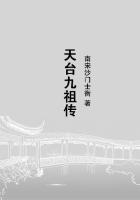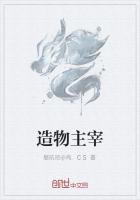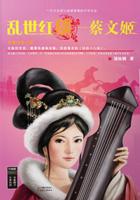It was Kamenev's first talk with Litvinov after his return, and I think they forgot that I was there. Kamenev asked Litvinov what he meant to do, and Litvinov told him he wished to establish a special department of control to receive all complaints, to examine into the efficiency of different commissariats, to get rid of parallelism, etc., and, in fact, to be the most unpopular department in Moscow. Kamenev laughed. "You need not think you are the first to have that idea. Every returning envoy without exception has the same. Coming back from abroad they notice more than we do the inefficiencies here, and at once think they will set everything right. Rakovsky sat here for months dreaming of nothing else. Joffe was the same when he came back from that tidy Berlin. Now you; and when Vorovsky comes (Vorovsky was still in Petrograd) I am ready to wager that he too has a scheme for general control waiting in his pocket. The thing cannot be done. The only way is, when something obviously needs doing, to put in some one we can trust to get it done. Soap is hardto get. Good. Establish a commission and soap instantly disappears. But put in one man to see that soap is forthcoming, and somehow or other we get it.""Where is the soap industry concentrated?""There are good factories, well equipped, here, but they are not working, partly for lack of material and partly, perhaps, because some crazy fool imagined that to take an inventory you must bring everything to a standstill."Litvinov asked him what he thought of the position as a whole. He said good, if only transport could be improved; but before the public of Moscow could feel an appreciable improvement it would be necessary that a hundred wagons of foodstuffs should be coming in daily. At present there are seldom more than twenty. I asked Kamenev about the schools, and he explained that one of their difficulties was due to the militarism forced upon them by external attacks. He explained that the new Red Army soldiers, being mostly workmen, are accustomed to a higher standard of comfort than the old army soldiers, who were mostly peasants. They objected to the planks which served as beds in the old, abominable, over-crowded and unhealthy barracks. Trotsky, looking everywhere for places to put his darlings, found nothing more suitable than the schools; and, in Kamenev's words, "We have to fight hard for every school." Another difficulty, he said, was the lack of school books. Histories, for example, written under the censorship and in accordance with the principles of the old regime, were now useless, and new ones were not ready, apart from the difficulty of getting paper and of printing. A lot, however, was being done. There was no need for a single child in Moscow to go hungry. 150,000 to 180,000 children got free meals daily in the schools. Over 10,000 pairs of felt boots had been given to children who needed them. The number of libraries had enormously increased. Physically workmen lived in far worse conditions than in 1912, but as far as their spiritual welfare was concerned there could be no comparison. Places like the famous Yar restaurant, where once the rich went to amuse themselves with orgies of feeding and drinking and flirting with gypsies,were now made into working men's clubs and theatres, where every working man had a right to go. As for the demand for literature from the provinces, it was far beyond the utmost efforts of the presses and the paper stores to supply.
When the party meeting ended, we went back to the lecture room where the members of the Soviet had already settled themselves in their places. I was struck at once by the absence of the general public which in the old days used to crowd the galleries to overflowing. The political excitement of the revolution has passed, and today there were no more spectators than are usually to be found in the gallery of the House of Commons. The character of the Soviet itself had not changed. Practically every man sitting on the benches was obviously a workman and keenly intent on what was being said. Litvinov practically repeated his speech of last night, making it, however, a little more demagogic in character, pointing out that after the Allied victory, the only corner of the world not dominated by Allied capital was Soviet Russia.
The Soviet passed a resolution expressing "firm confidence that the Soviet Government will succeed in getting peace and so in opening a wide road to the construction of a proletarian state." A note was passed up to Kamenev who, glancing at it, announced that the newly elected representative of the Chinese workmen in Moscow wished to speak. This was Chitaya Kuni, a solid little Chinaman with a big head, in black leather coat and breeches. I had often seen him before, and wondered who he was. He was received with great cordiality and made a quiet, rather shy speech in which he told them he was learning from them how to introduce socialism in China, and more compliments of the same sort. Reinstein replied, telling how at an American labour congress some years back the Americans shut the door in the face of a representative of a union of foreign workmen. "Such," he said, "was the feeling in America at the time when Gompers was supreme, but that time has passed." Still, as I listened to Reinstein, I wondered in how many other countries besides Russia, a representative of foreign labour would be thus welcomed. The reason has probably little to do with the good-heartedness of the Russians.
Owing to the general unification of wages Mr. Kuni could not represent the competition of cheap labour. I talked to the Chinaman afterwards. He is president of the Chinese Soviet. He told me they had just about a thousand Chinese workmen in Moscow, and therefore had a right to representation in the government of the town. I asked about the Chinese in the Red Army, and he said there were two or three thousand, not more.















